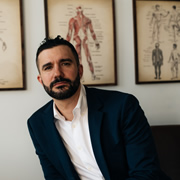Porn addiction is a growing problem for people across America. It can be difficult to know when watching porn has turned into an addiction and many people struggle with finding treatment due to the stigma associated with the condition.
- Treatment for porn addiction often includes therapy (e.g., CBT, DBT), support groups, and medication.
- Leaving porn addiction untreated can lead to increasing negative consequences in mental health, personal relationships, and the work setting.
- Signs that you may need treatment for porn addiction include the urge to watch porn in risky environments like the workplace, experiencing sexual dysfunction in real-life situations, and experiencing withdrawal symptoms after being away from porn for a period.
.jpg?v=1722503583)
Treatment Options for Porn Addiction
Due to the controversial nature of diagnosing hypersexual disorders like porn addiction, clear diagnostic criteria and causes of pornography addiction are difficult to quantify. However, continuous research and testimonies are giving addiction treatment providers clearer insight into what constitutes a porn addiction, helping them to develop effective treatment modalities.
Many providers provide help and treatment for porn addiction, which often includes therapy, support groups, holistic approaches, and in some cases medication.
Is porn addiction diagnosable?
The Diagnostic and Statistical Manual of Mental Disorders, 5th edition (DSM-5) does not yet recognize porn addiction as medically diagnosable. However, there’s growing evidence that supports the legitimacy of porn addiction as a condition that requires dedicated treatment. For example, when shown explicit images, men with problematic pornography use showed similar brain wave patterns observed in substance addiction[5] which demonstrates the similarities in manifestation between porn addiction and substance use disorders.
What causes porn addiction?
As with other behavioral and substance use disorders, several areas are believed to be directly linked to a person’s likelihood of developing a porn addiction. These include:
- Genetics - Research into genetics has identified a direct correlation between the likelihood of addiction developing and the presence of specific genes passed down from parents.
- Environment - Living, working, or having grown up in an environment of increased exposure to addiction increases the risk of developing a behavioral addiction.
- Childhood - How exposed a child is to problematic behavior and traumatic childhood experiences can influence addiction.
- Mental health - Co-occurring mental health and behavioral disorders are common, with mental health issues often leading to problematic behavior such as porn addiction, and vice versa.
Therapy for porn addiction
Talking therapies are the cornerstone of most forms of addiction treatment programs and the same is true with porn addiction. Most forms of talking therapy will aim to address a person’s emotional relationship with pornography; how they feel in the moments before using porn, how they feel immediately after, and how they feel after any prolonged period of abstinence from it. The goal is to help the afflicted person realign their emotional thought processes toward pornography as well as look at the deeper causes of it.
There are many forms of therapies that can be practiced with an addiction counselor or psychologist, such as:
- Cognitive Behavioral Therapy (CBT)
- Dialectical Behavioral Therapy (DBT)
- Motivational Interviewing
- Group Therapy
- Psychodynamic Therapy

Medical advisor
M.D.
Support groups for porn addiction
There are support groups across the country that are available to help individuals with addictions, including pornography. Most of these use the 12-step recovery method first developed by Alcoholics Anonymous while others, such as SMART Recovery, use their own recovery modalities.
If you are unsure where to find a support network for sexual or porn addiction near you, speak to your care physician or mental health professional, or check these resources:
- Sex Addicts Anonymous - SAA
- Substance Abuse and Mental Health Services Administration (SAMHSA): National Helpline 1-800-662-4357
- AASECT offers a list of certified sex therapists and counselors who endorse sex-positive treatment and research-based support.
Medication for porn addiction
Currently, there are no FDA-approved medications that are designed solely to treat porn or other sexual addictions. Research into off-label use of some medications has shown some effectiveness in treating porn addiction, though there is a lack of clinical trials to support this research.
Hypersexuality and porn addictions often co-occur with mental health disorders such as depression and anxiety disorders which can be treated with antidepressants. Taking antidepressants such as Zoloft or Lexapro can help reduce sexual cravings, though this may simply subdue the condition without fixing the source of the disorder.
Self-strategies to supplement porn addiction treatment
There are strategies you can practice to supplement your efforts in addiction treatment. Or if your relationship with porn is not one of addiction but you still feel you would like to gain control over it; these steps may help you:[2]
- Monitoring your triggers and interactions with porn by keeping a journal.
- Placing porn blockers on your devices.
- Confiding in someone close to you about your porn addiction struggles for social support and accountability.
- Finding hobbies or healthier forms of distraction, especially when feeling bored or stressed.
- Practicing mindfulness techniques to challenge and change negative thought patterns.

Medical advisor
M.D.
It is possible for people to control or even stop their engagement with porn on their own. However, a person’s ability to stop watching porn depends on the severity of their addiction to it as well as the presence of any other co-occurring disorders that may exacerbate their need for porn.
What happens if you leave porn addiction untreated?
When left untreated, dependence on pornographic materials may cause relationship, financial, and work-related problems as the individual has the tendency to isolate and neglect their responsibilities.[3] It is advisable to seek treatment as soon as early warning signs appear to mitigate the harms brought about by porn addiction.
When to see a doctor or therapist about porn addiction
If you are concerned about your porn use but are unsure if you have an addiction then there are some signs that can indicate whether it’s time to seek treatment or advice.
Speak to your doctor or a mental health professional if you start to experience the following:
- An increase in sexual dysfunction in real-life situations
- You begin to experience issues controlling other impulses, such as gambling or substance use
- You develop mental health issues such as depression or anxiety, or existing conditions worsen
- You feel the need to look at porn in risky situations, such as at work or in social situations
- You experience withdrawal symptoms after a prolonged absence from porn.
These are just some signs of porn addiction and some people may not experience all of them. Speaking to your doctor, a mental health professional or an addiction specialist can help you understand your treatment options and what the first steps are to recovering from porn addiction.



-(2)-guide-detail.jpg?v=1722502970)
